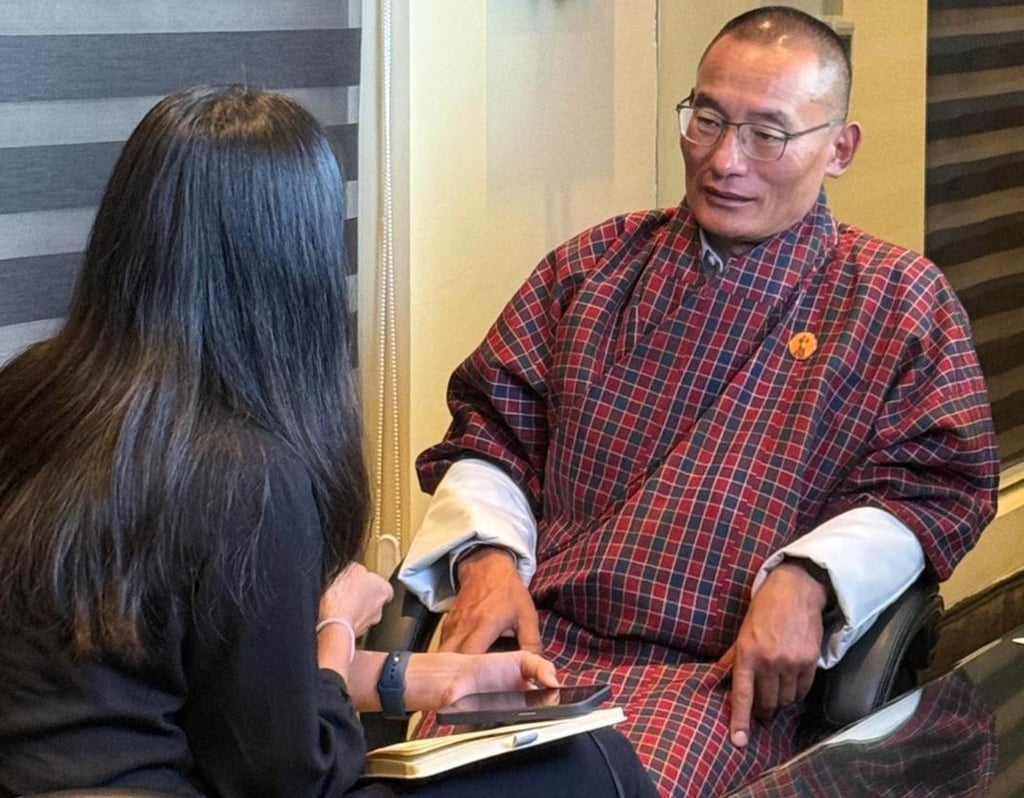Bhutan is a nation that prides itself on happiness over productivity, being the only net negative emission country and reluctantly democratising only after its monarch introduced the system in a time of peace, but the tides are changing for the Land of the Thunder Dragon.
Advertisement
Amid high youth unemployment and an exodus of talent – especially to Australia – the landlocked kingdom of just under 800,000 people bordering giants India and China, is banking on a new “one country, two systems” special administrative region to boost its economy while maintaining the mindfulness and sustainability ethos at the core of Bhutanese culture.
Speaking to This Week in Asia earlier this week in the capital Thimphu, Prime Minister Tshering Tobgay said the country’s quick development resulted in 99 per cent literacy rates within a generation and a well-educated demographic of English-speaking youth who were able to get jobs abroad.
“Now our challenge, obviously, has to be to create the conditions for them to work here, where our jobs are relatively competitive to the jobs that they can get in Australia. That will keep our youth here, and that will bring the youth who are in Australia back to Bhutan, and hence the Gelephu Mindfulness City,” Tobgay said during Bhutan’s Global Peace Prayer Festival, held from November 4 to 17.

Contributing to the kingdom’s uniqueness, the streets in Bhutan’s capital are lined with Buddhism prayer flags and pictures of the royal family instead of international franchises like McDonald’s and Starbucks.
Advertisement
About 70 per cent of the 38,000 sq km (14,670 square mile) country is covered by forest, and it is a constitutional requirement for this percentage not to dip below 60 per cent.

